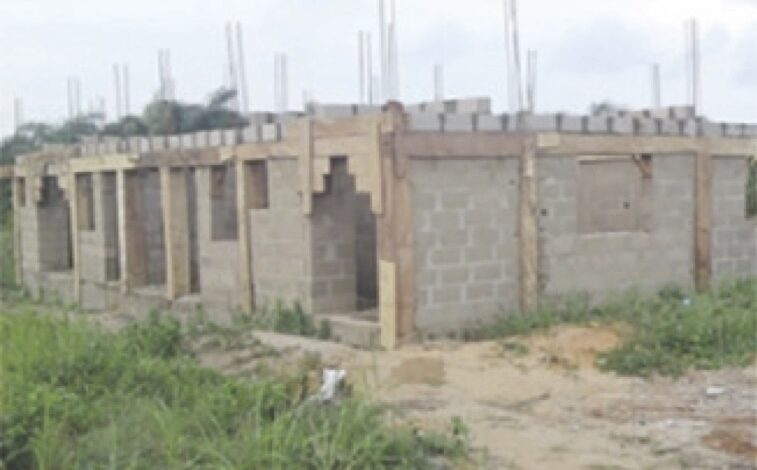The rapid escalation of building material costs is leading developers to either delay or abandon projects in Nigeria, according to industry experts, who warn that this trend is eroding quality and financial stability in the real estate sector.
At the recent handover of Cello 1, a luxury apartment project in Lagos by Leadroitt Realty, the company’s Managing Director, Gbemisola Ojerinde, highlighted the financial strain developers face.

Despite inflation and the high cost of materials, Ojerinde emphasized that Leadroitt Realty prioritized quality and timely delivery, resulting in Cello 1 selling out and buyers achieving over 100 percent Return on Investment (ROI).
“High inflation has posed severe challenges, but we delivered as promised,” Ojerinde said. “Cello two and three are also in development and will be completed within the next year, offering prospective homeowners a substantial ROI.”
Ojerinde encouraged buyers to consider off-plan investments, despite common apprehensions around project completion and quality, assuring them that Leadroitt Realty stands by its commitments. She also reassured investors that Leadroitt’s experience in property law provides a safeguard against government policy risks and potential property seizures.
Related Posts:
- Inflation and Dollar-Denominated Materials Drive Up…
- Cement Price, Cost of Building Materials, Force…
- Rising Building Material Costs Drive Up Construction…
- Experts Highlight Challenges and Opportunities in…
- Lagos State Govt Enforces Zero Tolerance for…
- Budget 2025: Real Estate’s Wishlist for Reform and Growth

Adding to the discussion, Leadroitt’s Senior Investment Advisor, Damilola Adeniran, underscored the impact of rising costs, noting that material prices have quadrupled over the past two years. This spike has compromised the financial feasibility of many projects and increased the risk of project delays and cancellations across the country.
Adeniran also addressed the recurring issue of building collapses in Nigeria, urging developers to conduct thorough due diligence, utilize quality materials, hire skilled labor, and secure all necessary approvals. “Cutting corners with substandard materials and unskilled labor compromises building integrity, leading to weak structures and collapse risks,” he cautioned.
The escalating cost of construction materials, coupled with safety and regulatory concerns, continues to challenge developers, making it harder for them to fulfill commitments. Experts stress that addressing these issues will be crucial for stabilizing Nigeria’s real estate market and building sustainable urban developments.



